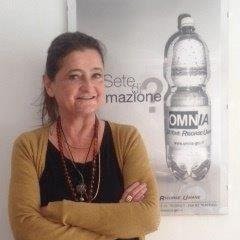THE MANAGEMENT OF MEETINGS
Acting a conceptual and behavioral model for managing meetings, planning meetings, managing meetings effectively and productively, keeping the attention of the participants high, monitoring the effect obtained.

Course professor:
Paola Viano
Objectives
At the end of the course participants will be able to:
- Acting a conceptual and behavioral model for managing meetings
- Design meetings
- Manage meetings effectively and productively
- Keep the attention of the participants high
- Monitor the effect obtained
Destinatari
The seminar is aimed at all those who, in various capacities, have the responsibility of managing business meetings. A number of participants: from a minimum of 2 to a maximum of 12.
Program
- Types of meetings
- Consider meetings as an investment
- Recognize the different types of meetings and adopt functional styles and tools each
- The design
- Why and when to have a meeting
- Do not think only of the meeting but of the purpose to be achieved
- Establish the agenda and priorities to be addressed
- The material useful during the meeting
- Planning: from the summons to the leave
- Implementation
- The importance of overseeing the Goals
- How to manage relationships within the group
- Knowing how to stimulate the attention of the participants
- Learn to read weak signals
- Time management in relation to the Objectives and participants
- The verbalization of decisions
- The test to verify understanding and/or consent
- The importance of asking for feedback
- Evaluate meetings to ensure their productivity
Didactic Methodology
The training will take place with an active methodology based on the involvement, enhancement, and capitalization of the participants’ experience.
Individual and group exercises, analysis of film clips, analysis of real cases, role-playing, elaborations, and theoretical inputs will alternate.
Teaching materials
At the end of the course, all participants will be provided, in digital format, with all the material used in the classroom (slides, exercises, case histories, etc.).
Duration
3 half days in webinar mode
